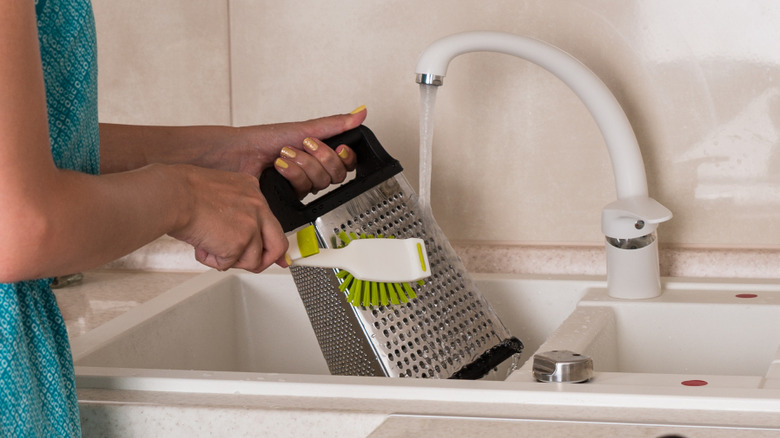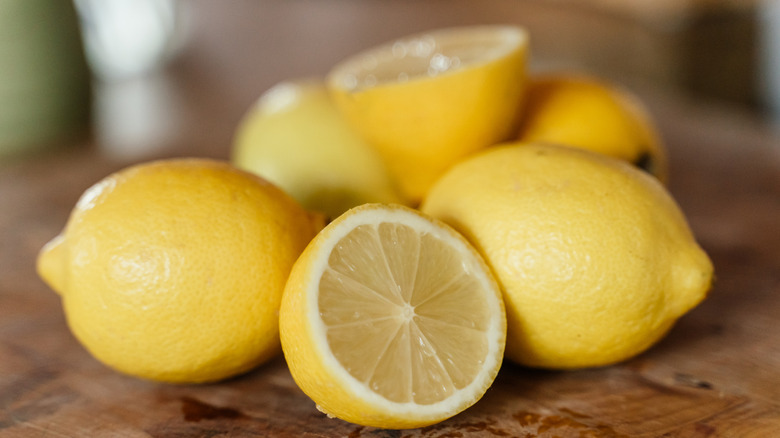Safely Cleaning Your Cheese Grater Without A Dishwasher
There are a lot of reasons to shred your own cheese, including the fact that some pre-shredded cheeses don't melt the same way fresh would. While freshly shredded cheese will almost always taste best, making it means taking out your cheese grater and having to clean it up afterward. While it may be tempting to toss it in your dishwasher if you have one, chances are this won't get it clean because of all the nooks and crannies. Unfortunately, cheese graters are best washed by hand, but that doesn't mean it has to be a tedious chore!
Cleaning your cheese grater by hand is the only way to ensure that there is no leftover grime, but it can be hazardous to your fingers if you use only a rag or a small sponge to clean it. One slip can cause you to slash your fingers across the jagged side of the grater. That's why, to keep your fingers safe and get your grater as clean as possible, you should use things like a Scotch-Brite dish brush or even a spare toothbrush if you have one on hand. This will keep your fingers away from the grater while the bristles get into the tiny crevices to remove left-behind cheese.
Optimally, you should clean your slicer as soon as you're done using it so the cheese doesn't have time to harden, making it more difficult to remove. However, if the grater has been sitting for a while and the cheese has hardened, soaking it in hot water and dish soap for about half an hour will loosen everything up.
Use the power of lemons to make your cheese grater sparkle
Aside from quickly cleaning it with a brush, there are a few other ways to get your cheese grater sparkling clean without using a dishwasher. One method involves using a lemon and some salt. Just like how a lemon can help clean a grimy oven, so too can it clean a dirty grater. With this method, you cut the lemon in half and dip it into a container of salt so that the granules coat the flat half of the fruit. You can then scrub your grater with the lemon to clean away any gunk. The reason why lemons work so well for cleaning a cheese grater (and other kitchen appliances) is thanks to their citric acid, which kills off bacteria. Moreover, the oil found in the lemon peel is excellent for breaking up grease. Once you've scrubbed your grater with the lemon, rinse it under warm water with a bit of dish soap on a cloth. Just take care to wipe upward when cleaning the lemon juice off (the opposite way that the blades are facing) to prevent injury.
Alternatively, you can use a bit of vinegar — just don't mix it with baking soda — to remove stains. Either spritz some on and scrub it down with a brush, or let it soak in some warm vinegar water for stubborn stains or caked-on cheese.

